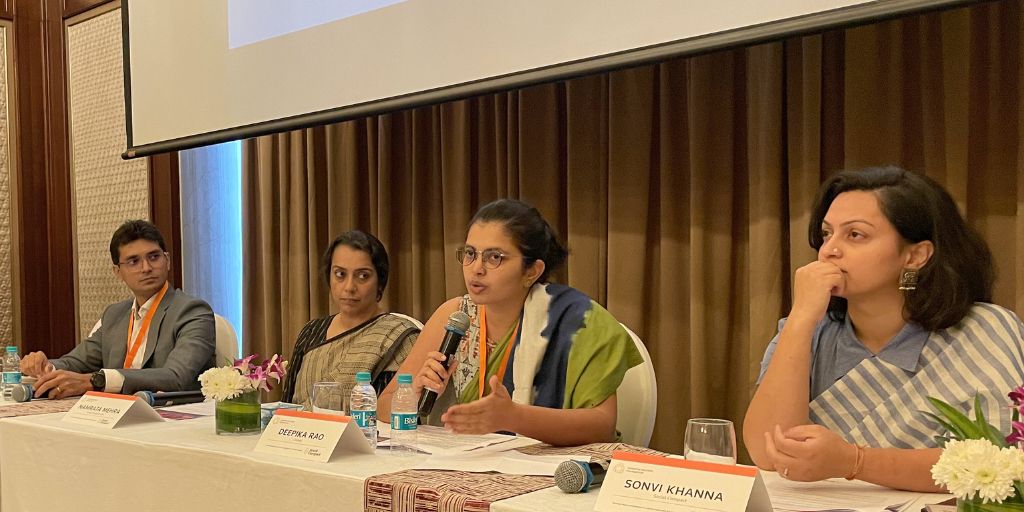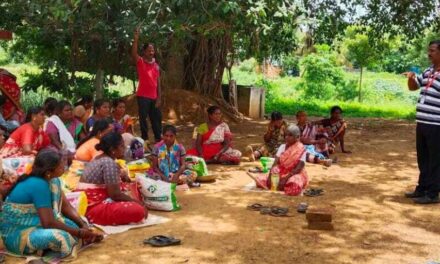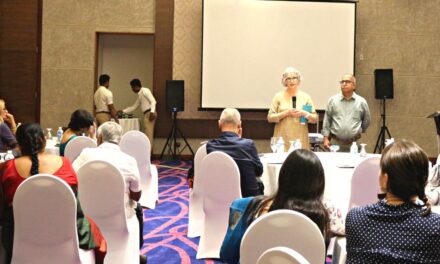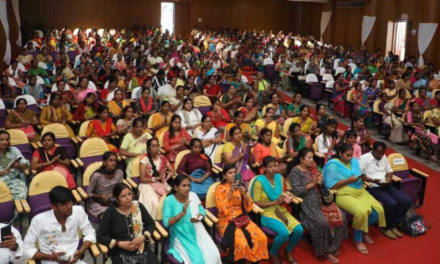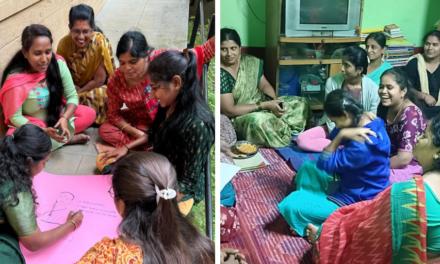How do European laws affect Indian workers? They could transform the way you work, especially if you are a low-wage worker in one of the numerous global value chains that manufacture a host of fast-moving consumer goods. It is this link that was emphasised by Cividep India’s Executive Director Deepika Rao who pointed to the significance of upcoming Human Rights Due Diligence (HRDD) legislations in Europe and elsewhere in safeguarding labour rights. She talked about how workers and society benefit when businesses actively mitigate human rights risks during a session on ‘The impact of Human Rights Due Diligence on businesses and communities’ at a conference organised by Thomson Reuters Foundation recently.
The conference aimed to foster multi-stakeholder collaboration for advancing decent work practices and labour rights in India, in collaboration with Social Compact and Dasra. Rao highlighted the human rights risks stemming from business practices and how responsible corporations can improve workers’ lives, making it a valuable investment for a stronger society. She shared Cividep India’s findings from an HRDD risk mapping exercise (see infobox), revealing high risks in wage sufficiency and discrimination within three Indian garment manufacturing clusters. Rao talked about the importance of social dialogue and effective grievance mechanisms, which contribute to safeguarding workers and businesses alike. Excerpts:
Q: Cividep has low wage workers in export-oriented sectors at the core of your work. From your perspective and experience, how is the new incoming global regulation likely to impact workers in India? Can you offer some examples?
A: Cividep India views the new global regulations on Human Rights Due Diligence (HRDD) as a positive development. We believe they are more binding and uphold higher standards than voluntary mechanisms and national regulations. At the same time, we also support national developments on voluntary mechanisms such as the National Guidelines on Responsible Business Conduct (NGRBC). Local mechanisms have their own role to play in pushing up standards.
The HRDD regulations require companies to go beyond compliance with national regulations and social audit standards. They must integrate due diligence into their policies, identify human rights risks faced by workers and communities in their operations and supply chains, and develop plans to mitigate these risks.
The onus placed on the top leadership of the company, and the possibility of a penalty, all in theory make it a solid protection for workers and communities. Stakeholder engagement is crucial, and continuous learning and improvement are emphasized. The responsibility extends to all layers of the supply chain, and includes both formal and informal workers.
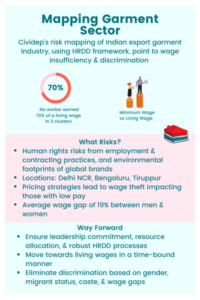
While the implications of HRDD are not fully visible yet, the regulations provide space for civil society organizations to conduct their own assessments and investigations.
To give an example, Cividep decided to engage with the HRDD framework from the perspective of impact on workers.
We decided to develop guidelines for NGOs and trade unions to carry out human rights due diligence from a civil society perspective. The experience showed that companies can gain substantial insights if they engage with the HRDD framework, which goes beyond surface-level audits.
The reality is that these risks exist. These risks are absorbed by the communities that live around the companies’ operations, it is absorbed by their workers and their families, by the state which takes care of affected communities, and by civil society.
When businesses have carried out genuine HRDD, they have gained in reputation, resiliency and enhanced social capital at minimal cost. And workers have gained much more, with considerable improvement to their lives.
Q: In your work you engage with both workers and businesses, especially around capacity building and grievances mechanisms. Can these processes help mitigate the impacts you’ve just mentioned? What does an effective grievance mechanism look like and how does implementing effective grievance mechanisms benefit businesses as well as workers?
In my view, social dialogue is more critical. Capacity building and grievance mechanisms have a role to play in mitigating risks but they have limited impact in the absence of any workplace dialogue.
Worker education should be complemented by meaningful dialogue – related to working conditions, safety, welfare measures, grievances – between managers and workers. This requires companies to enhance the capabilities of their managers in understanding and nurturing such workplace practices. Top leadership should allocate resources and establish policies that create fair, structured, and representative dialogue systems. Existing labour laws in our country already support such systems by mandating workplace committees, but companies often implement them very superficially, merely for compliance purposes.
Grievance mechanisms also rely on open dialogues. The absence of it suggests a workplace with unilateral policies and a lack of trust in employees. Faceless complaint boxes or hotlines offered by management do not work effectively when there is no ongoing dialogue.
In our experience, grievances are mainly shared with immediate supervisors, welfare officers, or HR managers. However, these officials often don’t have the training or mandate to sensitively address grievances. Their primary concern is to maintain production levels, resulting in grievances being managed rather than remedied. As a result, workers often seek external remedies through unions, the police, or other government mechanisms. The more we move away from workplace mechanisms, remedying the grievance becomes that much more complex and unlikely. Therefore, I cannot stress enough the importance of fostering social dialogue within the workplace.
Q: Are there any additional measures or alternative approaches that would be needed to protect workers and businesses?
The importance of trade unions and human rights defenders has not been sufficiently acknowledged by the upcoming and existing HRDD laws.
Trade unionists and human rights defenders specialise in identifying and raising labour and human rights risks caused by business operations and supply chains. They have been recognised as important stakeholders by the UNGPs (UN Guiding Principles on Business & Human Rights), from which the HRDD framework is derived. But the HRDD laws do not sufficiently recognise their importance.
Companies can address this gap by identifying and engaging with such organisations and individuals who have a strong track record of researching and reporting human rights violations in and around their business operations. Engaging with trade unions is essential as mature industrial relationships are key to mitigating workplace risks. This will otherwise be a missed opportunity for the industry as well as the trade unions in India. Similarly, human rights defenders have always spotlighted serious risks and have been persecuted for doing it. We are very far from recognising the importance of their work.

